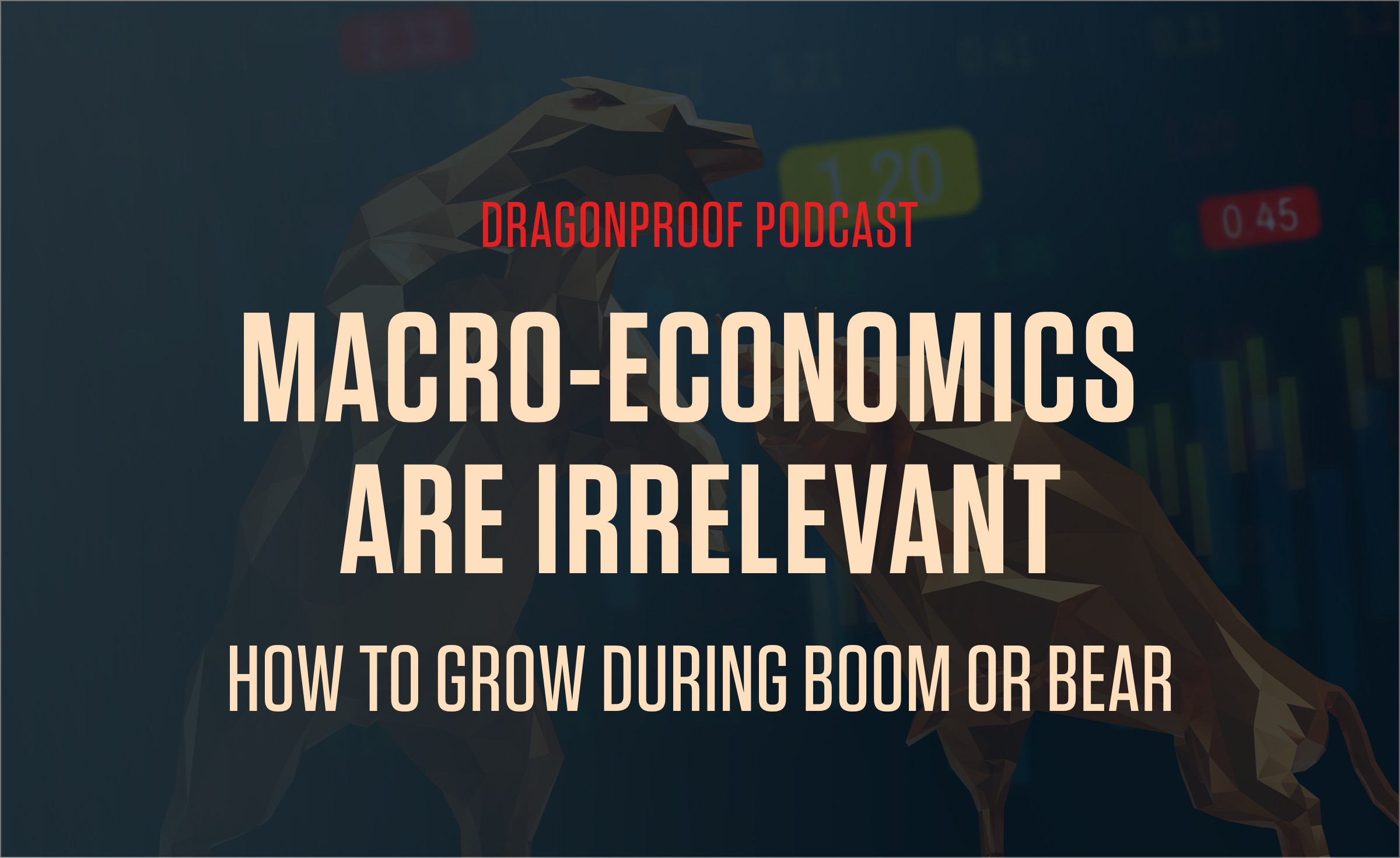By Miva | October 5, 2021

See why top ecommerce brands use Miva’s no-code platform to run
multiple stores, manage massive catalogs, and grow their revenue.
Making strategic plans requires awareness of larger economic trends, but as Rick Wilson observes on the latest Dragonproof Podcast, many entrepreneurs place far too much emphasis on big picture indicators, at the expense of the unique needs of individual businesses.
Bear periods, generally described as a 10-20% correction in stock prices, usually last between a month and year or two, but the shock value of “major economic downturn” headlines can drive many sellers to take evasive action like reducing stock orders, trimming marketing budgets, or shelving plans for expansion.
“We as humans have a bias that what goes up must come down, and so even when times are great we are always waiting for the next crash” Rick says. “However, the value of the stock market (or other major indicators like U.S. GDP) are only loosely correlated to the everyday economics of any given business. You need to be focused on your business and not the Wall Street Journal.”
In many cases, a brand or product line may not be subject to the same forces which shape the stock market, and frequently, a product might even be better suited to an audience experiencing a slow economy. Selling during Covid gave us many examples of this, such as household essentials which experienced more demand than ever in history. A seller of these items who had read headlines about an incoming economic crash and cancelled all of their orders as a result would have missed out on this business.
Even more astoundingly, entire industries can often move irrespectively of big picture economic news. Ecommerce itself is the perfect example.
“The 2008 financial crisis actually marks one of the first big economic booms for ecommerce,” Rick points out. “People started opening online stores due to the democratization of the technology at a relatively low price, as a hedge against losing their “Main Street” job. Enough of those businesses succeeded to create a micro-economic boom in the world of ecommerce. This was not totally dissimilar to what we witnessed in the first 18 months of the pandemic."
Sellers watching the latest Consumer Confidence Report may be alarmed at a dip that is described as ominous for the economy, but this reporting should only inspire businesses to lean harder into solving their unique customer’s problems, as those problems evolve with time. A seller is not tasked with rescuing a national economy, only with providing the most relevant and effective service to their own audience. Over a long enough time scale, the larger economy will always bounce back. Understanding the individual consumer must remain paramount.
“The macro economics are not more important than the granular detail of who you are, what you sell, who you sell it to, and why,” Rick concludes. "Opportunity really hides at that intersection between seeing the cold, hard facts of a business, plus seeing the fantastical possibilities that no one else can see."
To hear the full episode, visit dragonproof.us
Back to topNo worries, download the PDF version now and enjoy your reading later...
Download PDF Miva
Miva
Miva offers a flexible and adaptable ecommerce platform that evolves with businesses and allows them to drive sales, maximize average order value, cut overhead costs, and increase revenue. Miva has been helping businesses realize their ecommerce potential for over 20 years and empowering retail, wholesale, and direct-to-consumer sellers across all industries to transform their business through ecommerce.
Visit Website